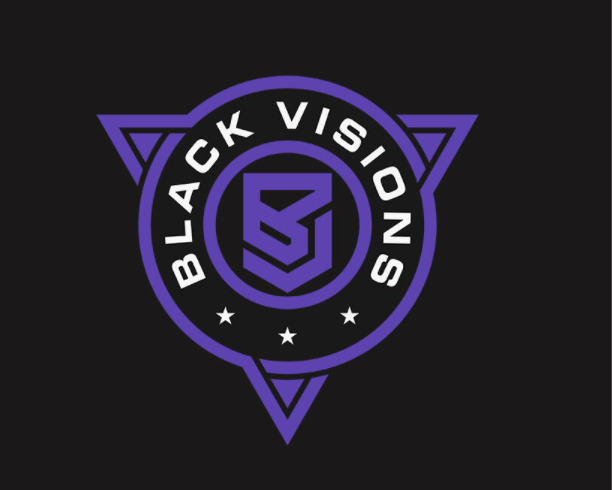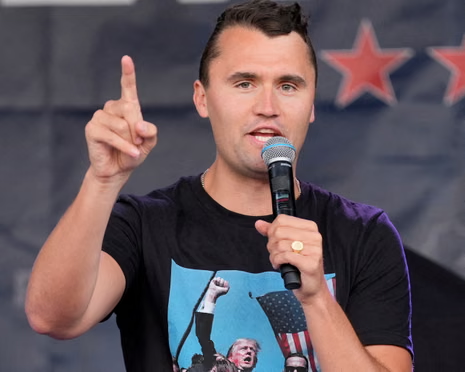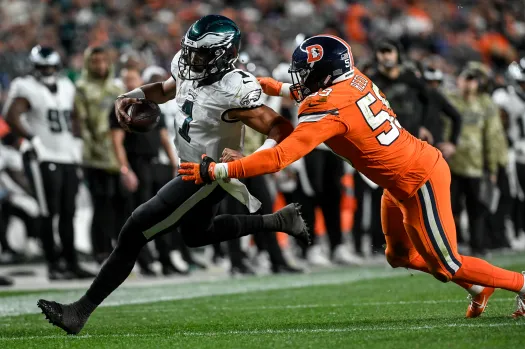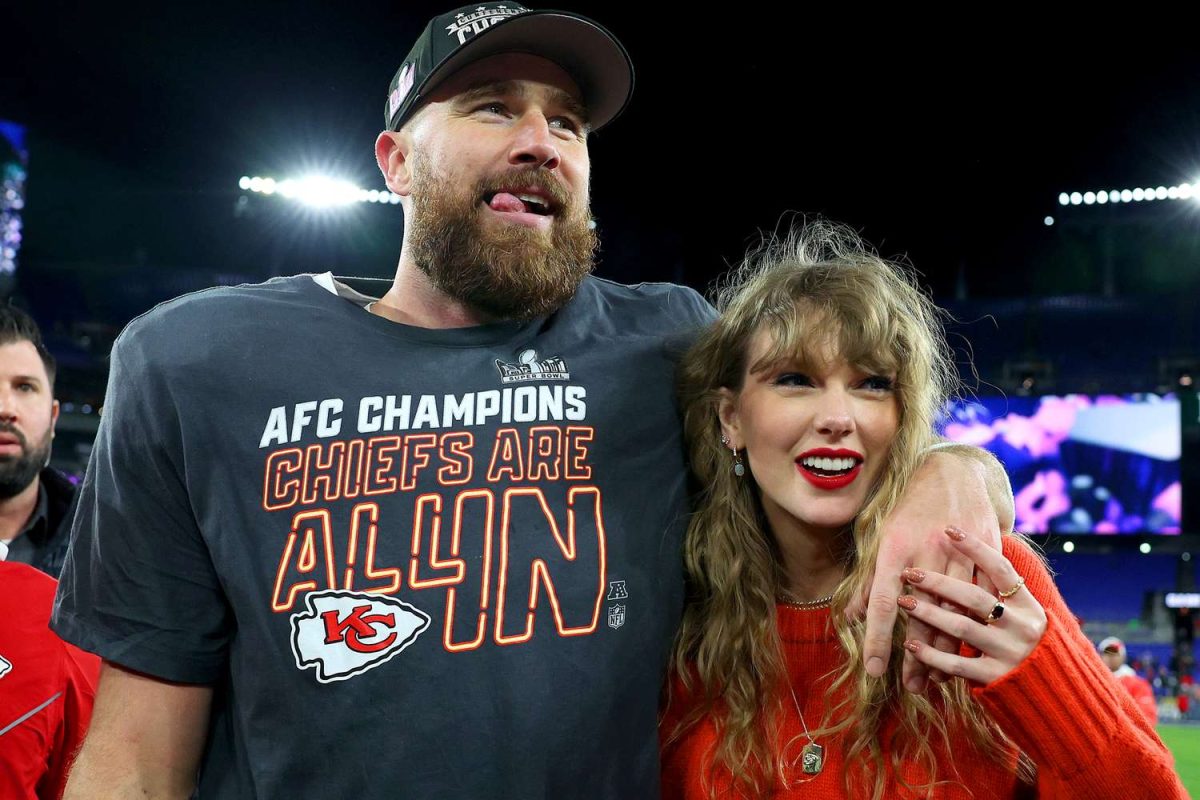Black Visions and its founders have had a large impact on the defunding of the police movement and abolition, especially with Minneapolis, Michigan. The mission of Black Visions is to organize and connect Black communities while also dismantling systems of violence in America. Black Visions was founded in 2017 by Kandace Montgomery (she/they), Miski Noor (they/them), and Oluchi Omeoga (any pronouns). Each of these individuals has made huge contributions to the Black and queer communities inside and outside of Black Visions.
Kandace Montgomery, queer and nonbinary, is the director and co-founder of Black Visions. Their motivation for organizing started with the racism and hardships they faced growing up. In 2014, she helped start and lead the Black Lives Matter chapter in Minnesota after the murder of Tamir Rice. She collaborated with the other founders in 2017 to form Black Visions. She said of her goal: “We wanted to be clear that we organize Black people, from the beginning, we knew we wanted to build a visionary organization” (Wortham). They have made efforts to defund Minneapolis police departments by shifting $1 million towards efforts like the Office of Violence Prevention. She stated that her goal is “transitioning completely away [from policing] across the country and across the globe” (“Black Visions Collective”). Miski Noor, queer and gender non-conforming, is a writer, organizer, and co-founder of the Black Lives Matter chapter in Minnesota and Black Visions. They prioritized abolition within Black Visions and aimed to cover issues that affect all Black people (economics, immigration, and police violence). They hope to use their resources within Black Visions to create a “Black-led ecosystem” (Wortham). Oluchi Omeoga is transgender and the third co-founder of Black Visions. She is an activist, spokesperson for Black Visions, and the co-founder and national organizer of the Black LGBTQ+ Migrant Project (BLMP). Omega described Black Visions as rooted in “queer Black feminism” (“Black Visions Collective”). The intersectionality of these leaders’ identities allows them to have a new perspective and understand how police violence can affect all Black people, which motivates their overall mission.
Black Visions was created as a political and community-based organization for Black people in Minneapolis. Black Visions “envisions a world in which ALL Black Lives Matter” (Black Visions). They are taking the lessons from previous organizations to shape a political home in Minnesota for Black people. They prioritize publicly pressuring city officials to defund police departments. The death of George Floyd in Minnesota only created more urgency for this group to request defunding and ultimately abolishing the police. According to their website, their vision is to have a future where all Black people have autonomy and safety is completely community-led (Black Visions). The values of Black Visions are Black joy, power, vision, and transformation. They aim to address the harm of present and past generations, influence global movements of resilience and community action, and grow Black futures (Black Visions). Black Visions has trained and organized action for over 70 partner organizations and 40,000 community members on the path toward community-led safety and abolition (Black Visions). In 2020, they led a global movement to #DefundPolice and removed about $8 million from Minneapolis Police Department (Black Visions). After removing these funds, they reinvested the money towards prevention, mental health services, and community-based alternatives. As of February 2021, they gave out $1.1 million to individuals for mutual and legal aid, and $6 million in grants to 121 organizations, collectives, artists, healers, and organizers (Black Visions). Black Visions has hosted rallies like the Powderhorn Park rally. After this rally, the next steps were to create alternatives to police and rewrite the city charter. They wanted to survey residents about their needs for safety and how to substitute and replace armed officers.
Black Visions has multiple campaigns they are working on to better serve the Black community. The first is the Path Forward Campaign which began in 2021. They invest in the leadership within communities to develop visions for the future and demand for safety through people’s assembly process. Within this campaign is the People’s Movement Assembly, which will build the People’s Agenda. This assembly gathers people who are impacted by a common issue and come together to study problems and find solutions or next steps. The second campaign is Yes 4 Minneapolis. This is a Black-led coalition that seeks to replace the Minneapolis Police Department with a new department for public safety. Currently, the Minneapolis city charter requires the city to have a police department with a minimum level of sworn officers on staff. They want to campaign for a new charter that will amend the current charter and remove the requirements for police officers. They want to form a Department of Community and Violence Prevention with an integrated system that incorporates licensed peace officers and invests in new strategies for community safety. Black Visions even has a resource guide book titled, Minnesota Without Policing, on how to possibly create a new system for safety. This guide is free for download via the Black Visions website
“We give this resource guide to you as a gift and an invitation. Our hope is that these pages will empower you to take your next step in embracing community-led safety. We offer guidance about starting and leading these conversations, context to help you understand how far-reaching police violence is…The work to transform the world we live in isn’t easy, but we love… our communities too much to not fully invest in this movement. Consider this an invitation to join us on this journey, to one day reach the liberation we dream of.” (Black Visions)
The idea of defunding the police with hopes to fully abolish it stemmed from decades of police violence mainly impacting communities of color. Miski Noor commented, “…whatever it is that we’re envisioning together to move toward is much safer than what currently exists, because what currently exists is a police system…that is incapable of keeping so many of us in mostly marginalized communities safe” (O’Dowd, Raphelson). This campaign for defunding the police has caught the attention of government officials across the country. Many leaders want to reallocate funds to support mental health services. Statistics show that police are actually ineffective at stopping violence. Sometimes, police would respond to crimes but not act on them effectively. It was reported that “the failure to prosecute murderous police typifies a bad overall track record with solving violent crimes: Approximately 38% of murders, 66% of rapes, 70% of robberies, and 47% of aggravated assaults go uncleared every year” (Ray). Sixty years of data prove that increasing the funds for police departments did not decrease crime rates. Studies also show that nine out of ten calls for emergency services are not violent (Ray). The police can actually lead to the escalation of these incidents since their training usually does not align with the social interactions they may encounter (Ray). They are mostly trained to react with force and how to deal with worst-case scenarios, however, most of their interactions just begin with a conversation. Therefore, shifting funding to social services like mental health, addiction, and homelessness can benefit society. Those with mental health crises are sixteen times more likely to die during encounters with the police (“Police Departments Are Broken. Is It Time to Abolish Them All Together? | Pro/Con.”). It is imperative to expand restorative and transformative processes for accountability, offer better quality housing, food, employment, daycare, transportation, education, and debt cancellation. Reinvesting in street violence interruption to reduce neighborhood violence would provide more opportunities for communities to thrive. Processes or models for reform can look different within each community. The new accountability process would potentially be safer for those harmed, changing behaviors for those who caused harm, transforming situations that perpetuated this violence (Raven). “Denaturalizing the relationship between punishment and safety” would be the first step to making an effective new accountability process (Raven). Noor believes “Of course, people are scared, but our people don’t know life without police … and can’t imagine it in so many ways, so as organizers and as abolitionists, it’s our responsibility to hold people in their fear and then ask them the questions of what actually [does] keep them safe” (O’Dowd, Raphelson).





